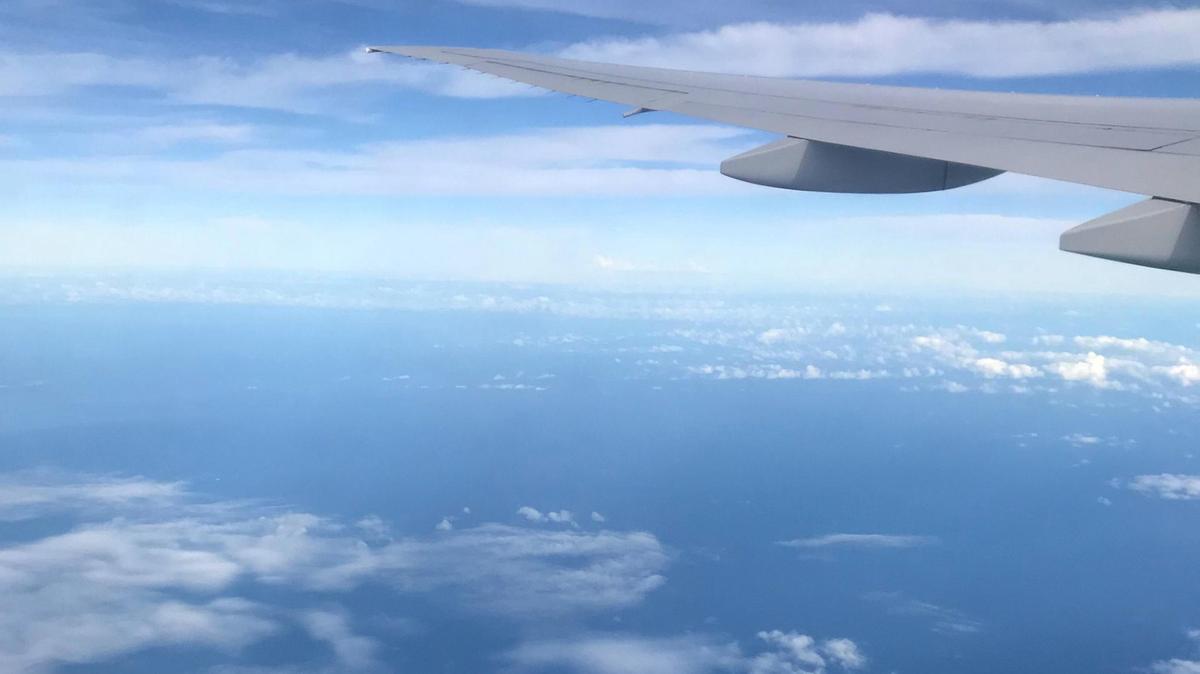On the move: Travelling the world for work is a joy, but what is the cost?

As my plane took off from Mahe last week, a lump formed in my throat. Soaring higher, I gazed down at the implausibly blue Indian Ocean. Swaying and swelling, the azure water was peppered with stunningly clear shallows, bright golden bays and white frothy surf, which appeared and disappeared with the movement of the tide.
I was heading back to Abu Dhabi after spending four days in the Seychelles, where I found out more about ecotourism on the islands. I interviewed environment managers, spoke with turtle experts and consulted reef restoration specialists. I visited remote islands that were home to giant tortoises born in the formative years of the 20th century. I walked along pristine beaches favoured by sea turtles as their annual nesting grounds. I explored the Vallee de Mai Nature Reserve, one of only two places in the world where the coco de mer palm grows. It had been a complete nature immersion but then, as my plane roared above the islands, it was hard not to think about the damage the aircraft was causing to the paradisaical archipelago.
The devastating effects of overtourism
Today, as more and more people travel across the world, there are many stories highlighting the devastating effect tourism is having on the planet. Air travel is one of the prime villains, contributing more than 2 per cent of global carbon dioxide emissions.
As a travel writer, I rely heavily on aeroplanes and, as the industry’s environmental impact becomes more difficult to ignore, I’m forced to accept that I account for more than my fair share of damage. The lump in my throat swells as I tot up the trips I have taken in the past year alone.
Overtourism is affecting the entire world. Authorities have been forced to close fjords in Iceland, restrict climbers in Nepal and ban tourists from beaches in Thailand. So how can I justify my career choice? My work can help local economies across the world, often bringing attention to little-known destinations where people are seeking to profit from tourism. On the other hand, my frequent travelling also contributes to environmental damage. This is the curse of the travel writer and, as long as I continue to do this job, or at least until the industry becomes better regulated, it’s something I have to live with.
How we can do our part to save the environment
Hopefully, it won’t be too long until we reach a point that regulation means airlines are funding research into the creation of cheap biofuels or other sustainable methods of flight, even if that comes with increased airfares. When resorts are obligated to invest in sustainable programmes that consider food waste, water conservation and investment in local communities, hotel prices may go up, but the cost to the environment will come down.
Until then, it’s on all of us to take action to help offset our own carbon footprint. As much as my job involves collating notes scribbled on hotel napkins, staying on top of my unpacking and balancing my circadian rhythm, so too must it include the need to relieve the environmental impact of my travelling.
Regulation is coming. In the Seychelles, I completed a survey asking tourists if they would be willing to pay an island conservation tax. I ticked the “yes” box. A big misconception about travel writers is that we’re paid to travel. We’re not – we’re paid to write. But if we are to continue to enjoy the privilege of travelling the planet, the least we can do is ensure others are also able to enjoy it. Whether we achieve that at our own cost, through offsetting programmes or by influencing readers on where to spend their money doesn’t really matter, so long as we commit to investing in the planet we continue to explore.
